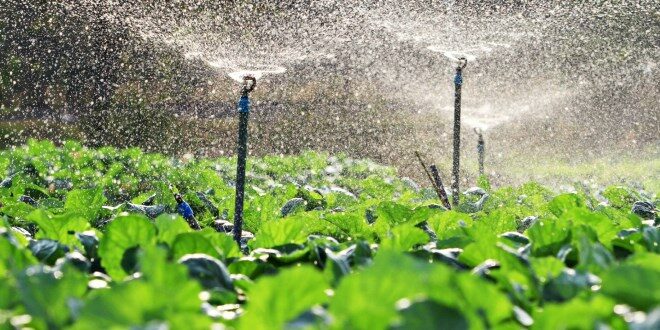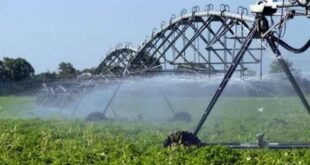You must be wondering, what is irrigation? Should we invest in irrigation, how to choose irrigation companies near me? Yes, all of them are quite precious to be considered. As you are getting interested in agriculture irrigation companies near me, let’s check the discussion below.
Definition of Irrigation
The agricultural practice of providing measured quantities of water to land to help in agricultural production, in addition to developing landscaping plants or lawns, which is sometimes referred as watering, is recognized as irrigation. Rain-fed agriculture is defined as agriculture which does not utilize irrigation and relies just on rain water. Over 5,000 years ago, irrigation became a crucial aspect of agriculture, and several cultures all over the world have independently developed it since then.
In dry locations and during times of below-average rainfall, irrigation aids in the growth of agricultural crops, the upkeep of landscapes, and the revegetation of damaged soils. In addition to protecting crops from the effects of frost, irrigation may also be used to control weed development in grain areas and avoid soil compaction. Additionally, irrigation systems are employed in mining, dust control, animal cooling, and sewage disposal. Drainage, or the evacuation of both subsurface and surface water from such an area, is typically studied in conjunction with irrigation.
Irrigation Systems Benefits
Over 50% of the water used by hand is lost to runoff or evaporation. As opposed to manual irrigation controls, automatic irrigation settings have many advantages that can help you use less water and save money. Continue reading to find out how to make the most of your grass while using less water and considering best irrigation companies near me.
1. You Can Conserve Time and Water
Both drip irrigation and sprinkler irrigation may be programmed to water plants on a daily, weekly, or scheduled basis. Upon completion of the irrigation cycle, the device will also automatically turn the water off. You don’t need to be there for the water system to function if it’s automated, which is how many people nowadays get their water supply. Since less water would be utilized, the automated shut down will save your expenditures while ensuring minimal water usage.
2. Minimizes Weed Growth
Having an irrigation system made especially for your landscape will ensure that only the areas that actually require water are watered, decreasing the chance of weed development. This is where drip irrigation systems excel since they provide water directly to each plant’s roots rather than splashing it over the entire landscape.
3. Bolsters Plant Growth
Irrigation systems are specifically made to hydrate plants in lesser amounts over longer periods of time, which will cause plants to develop quicker and greener. Your plant development will be considerably improved by installing an irrigation system.
4. Keeps Soil Nutrients Intact
When you water by hand, extra water frequently seeps into the soil. Runoff from rainstorms penetrates into the soil, stealing vital nutrients from your plants. Additionally, using a hose might compress your soil, which can cause root diseases or plant suffocation. The soil quality will be preserved if you use an irrigation system, as well as your plants will continue to collect nutrients rather than discharge water.
Installing an irrigation system would be a wise investment if you want to enhance the overall appeal of your house. Irrigation companies near me and landscape irrigation companies near me offer the precise quantity of water your landscape needs to grow, along with a variety of features and advantages. An irrigation system may be the solution if you want to give dry areas more consideration and care, if you appreciate the notion of conserving time and funds, or if you would like to increase the value of your property.
Two Types of Irrigation Systems
Low flow as well as high flow irrigation are indeed the two basic varieties. If necessary, each can be used in a single garden. Low flow systems include drip lines, drip emitters, and micro spray. Fixed spray, rotor, bubbler, impact, and soaker hose are the examples of high flow irrigation systems.
With the exception of lawns, drip irrigation is preferred for the majority of the garden. Sprinklers can also be utilized for grass or low-growing plantings as necessary. Remember that the irrigation system must be planned to avoid runoff, low head draining, overspray, or any other similar situations where the irrigation spills into non-targeted locations, such as neighboring land, non-irrigated areas, hardships, highways, or structures.
Irrigation’s Effects on the Environment
The amount, quality, as well as subsequent impacts of irrigated agriculture on soil, water, and social circumstances in river systems and downstream of such an irrigation system are referred to as the environmental consequences of irrigation. The consequences result from the changing hydrological circumstances brought on by the setup and management of the irrigation system.
Depletion of subsurface aquifers due to overdrafting is one of these issues. Due to uneven water distribution or inadequate management, soil may be over-irrigated, which loses water, chemicals, and might result in water contamination. Over-irrigation can result in deep drainage from increasing water tables, which can produce salinity issues with irrigation and require some kind of subsurface land drainage to manage the water table.
However, inadequate soil irrigation results in poor soil salinity management, which raises soil salinity and causes a deposit of harmful salts upon that soil surface in high evaporation locations. This calls for either leaching to get rid of the salts or perhaps a drainage technique to get the salts out of the way. Due to the development of alkaline soil, irrigation using high-sodium water can harm the soil’s structure.
Conclusion
Water is artificially delivered to the soil by a variety of tube, pump, and spraying systems. In regions with erratic rainfall, dry spells, or potential drought, irrigation is frequently employed. There are some different kinds of irrigation systems, where water is distributed evenly throughout the entire area.
The soil in issue is always kept at the ideal moisture level to encourage the sprouting of seedlings thanks to an irrigation system. The productivity of irrigated land exceeds that of unirrigated land. As you are concerned about utilizing an irrigation system, make sure that you find and choose the best irrigation companies near me.
 Business Ideas Plan BUSINESSIDEASPLAN.COM
Business Ideas Plan BUSINESSIDEASPLAN.COM






